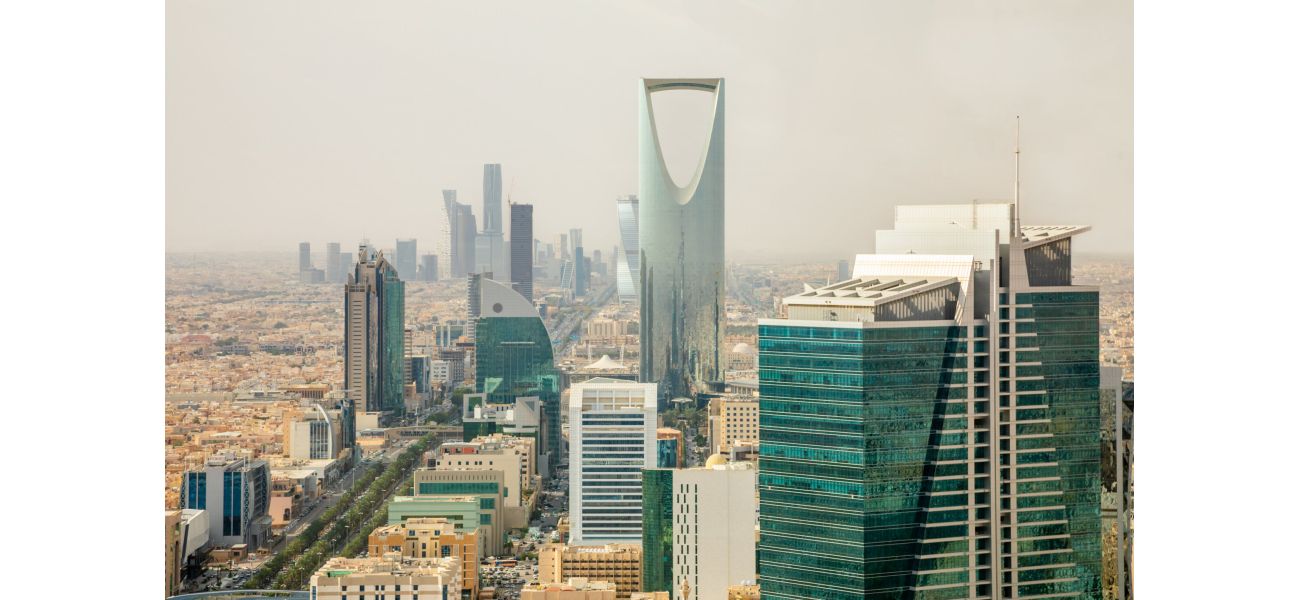Saudi Arabia has put to death 100 non-citizens in 2024, causing a major crisis.
The country has executed a record-breaking number, triple the amount from last year.
November 18th 2024.

According to a human rights group, Saudi Arabia has made headlines yet again by executing over 100 foreigners this year alone – a record-breaking number. The most recent execution occurred on Saturday in the southwestern region of Najran, where a Yemeni national was put to death for drug smuggling, as reported by the official Saudi Press Agency.
This brings the total number of foreigners executed in the country to 101, almost triple the amount from last year and 2022 combined, according to statistics gathered by AFP. Jeed Basyouni, who leads an anti-death penalty organization in the Middle East, expressed concern that the overall number of executions in Saudi Arabia, including nationals, is projected to exceed 300 by the end of the year.
"This is an unprecedented crisis in Saudi Arabia," said Basyouni. "Families of foreign nationals on death row are understandably terrified that their loved one will be next."
Taha al-Hajji, the legal director of the European-Saudi Organization for Human Rights, also spoke out about the alarming situation, stating that this is the highest number of foreigner executions in a year that the country has ever seen. "Saudi Arabia has never executed 100 foreigners in a year," he added.
Criticism of Saudi Arabia's use of the death penalty has been ongoing, as human rights groups argue that it is excessive and does not align with the country's efforts to improve its image and attract tourists and investors. In 2023, Saudi Arabia ranked third in the world for the highest number of executions, after China and Iran, according to Amnesty International.
It was reported in September that the country had already surpassed its previous records for executions in a year, with a total of 274 people put to death as of Sunday. The nationalities of those executed include individuals from Pakistan, Yemen, Syria, Nigeria, Egypt, Jordan, Ethiopia, Sudan, India, Afghanistan, Sri Lanka, Eritrea, and the Philippines.
In 2022, Saudi Arabia lifted a three-year moratorium on executing drug offenders, which has contributed to the high number of executions this year. Out of the 92 executions so far, 69 were of foreigners, according to AFP.
Diplomats and activists have also raised concerns about the fairness of trials for foreign defendants, who often face barriers such as limited access to court documents. "Foreigners are the most vulnerable group," stated Mr. Hajji of the ESOHR. "Not only are they victims of major drug dealers, but they are also subjected to a series of violations from the moment of their arrest until their execution."
It is well-known that Saudi Arabia carries out beheadings as a form of capital punishment, although official statements rarely mention the method of execution. This high number of executions contradicts statements made by Crown Prince Mohammed bin Salman in 2022, who claimed that the country had abolished the death penalty except for murder cases or when an individual poses a threat to many lives.
In a similar incident, the kingdom executed 81 people in one day in 2022 for terror offenses and other violent crimes, making it the largest mass execution in modern Saudi history. This has sparked outrage and protests, such as when Tunisians rallied against the Saudi Crown Prince's visit to their country in 2018 following the killing of journalist Jamal Khashoggi at the Saudi consulate in Istanbul.
This brings the total number of foreigners executed in the country to 101, almost triple the amount from last year and 2022 combined, according to statistics gathered by AFP. Jeed Basyouni, who leads an anti-death penalty organization in the Middle East, expressed concern that the overall number of executions in Saudi Arabia, including nationals, is projected to exceed 300 by the end of the year.
"This is an unprecedented crisis in Saudi Arabia," said Basyouni. "Families of foreign nationals on death row are understandably terrified that their loved one will be next."
Taha al-Hajji, the legal director of the European-Saudi Organization for Human Rights, also spoke out about the alarming situation, stating that this is the highest number of foreigner executions in a year that the country has ever seen. "Saudi Arabia has never executed 100 foreigners in a year," he added.
Criticism of Saudi Arabia's use of the death penalty has been ongoing, as human rights groups argue that it is excessive and does not align with the country's efforts to improve its image and attract tourists and investors. In 2023, Saudi Arabia ranked third in the world for the highest number of executions, after China and Iran, according to Amnesty International.
It was reported in September that the country had already surpassed its previous records for executions in a year, with a total of 274 people put to death as of Sunday. The nationalities of those executed include individuals from Pakistan, Yemen, Syria, Nigeria, Egypt, Jordan, Ethiopia, Sudan, India, Afghanistan, Sri Lanka, Eritrea, and the Philippines.
In 2022, Saudi Arabia lifted a three-year moratorium on executing drug offenders, which has contributed to the high number of executions this year. Out of the 92 executions so far, 69 were of foreigners, according to AFP.
Diplomats and activists have also raised concerns about the fairness of trials for foreign defendants, who often face barriers such as limited access to court documents. "Foreigners are the most vulnerable group," stated Mr. Hajji of the ESOHR. "Not only are they victims of major drug dealers, but they are also subjected to a series of violations from the moment of their arrest until their execution."
It is well-known that Saudi Arabia carries out beheadings as a form of capital punishment, although official statements rarely mention the method of execution. This high number of executions contradicts statements made by Crown Prince Mohammed bin Salman in 2022, who claimed that the country had abolished the death penalty except for murder cases or when an individual poses a threat to many lives.
In a similar incident, the kingdom executed 81 people in one day in 2022 for terror offenses and other violent crimes, making it the largest mass execution in modern Saudi history. This has sparked outrage and protests, such as when Tunisians rallied against the Saudi Crown Prince's visit to their country in 2018 following the killing of journalist Jamal Khashoggi at the Saudi consulate in Istanbul.
[This article has been trending online recently and has been generated with AI. Your feed is customized.]
[Generative AI is experimental.]
0
0
Submit Comment





